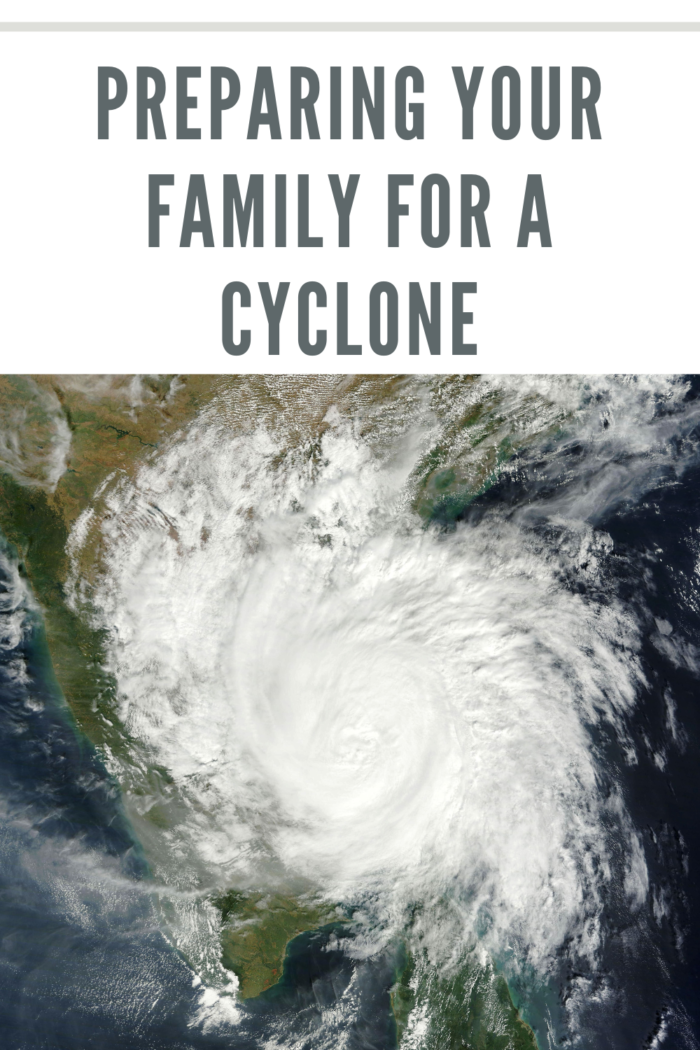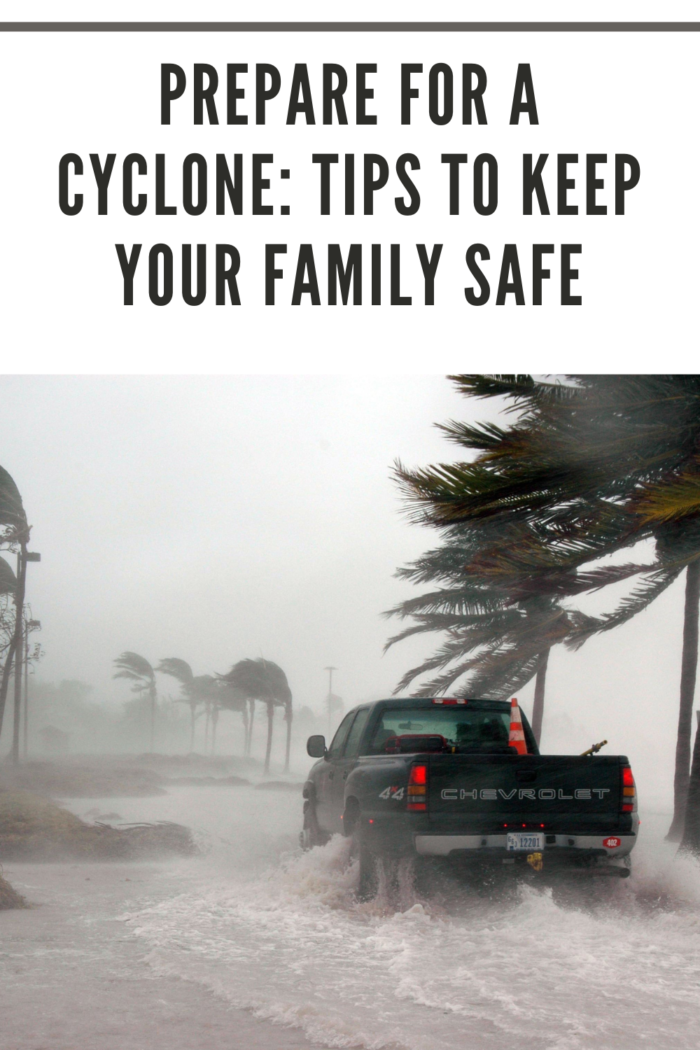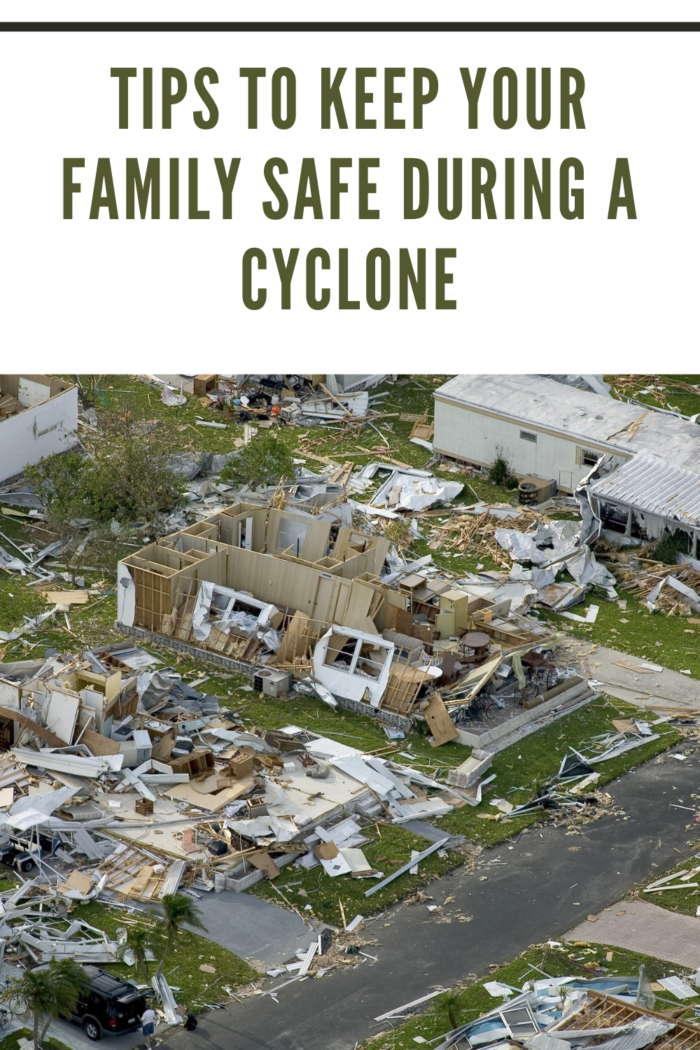Cyclones are one of the most destructive forces of nature. Families need to be prepared for a cyclone by following these tips.
- A cyclone is a powerful storm system with winds reaching up to 280 km/h and characterized by an area of low pressure.
- Cyclones can cause immense damage to property, and infrastructure, power outages, and disruption of essential services.
- To prepare for a cyclone, it is essential to reinforce your home, invest in supplies, and have a generator on hand.
- It is also crucial to create an emergency plan that outlines essential steps such as turning off electricity, gas, and water valves, securing your home, and evacuating if needed.
- Staying updated on the latest weather forecasts and warnings is also key to mitigating the risks of a cyclone and keeping your family safe.
A cyclone is one of nature’s most destructive forces and can cause immense damage to both property and lives. Being well-prepared for a cyclone is vital to protect your family from harm. Here’s an overview of what every family must know about cyclones and some tips on preparing for them.

What Is A Cyclone?
A cyclone is an extensive storm system characterized by strong winds that rotate around a central area of low pressure. Cyclones form over oceans when water temperatures rise above 26 degrees Celsius, creating areas of low pressure along the ocean surface, which can then form into more powerful storms with wind speeds reaching up to 280 km/h.
Cyclones are categorized according to their strength, with Tropical Depressions (winds less than 62 km/h) being the weakest category and Category 5 Cyclones (winds greater than 249 km/h) being the strongest.

Cyclones Aftermath
This natural disaster can cause immense damage to property and lives. The strong winds can knock down trees, power lines, buildings, and infrastructure. In addition, flooding can occur due to torrential rains, which may be accompanied by storm surges caused by high waves in coastal areas.
It can affect your family by causing loss of life, damage to property and infrastructure, power outages, and disruption of essential services.

Preparing for a Cyclone
It is important to be well-prepared for a cyclone so your family can stay safe. Before the cyclone season starts in your region, it’s good to ensure that you have a plan in place and that your family is well-informed about the risks. Here are some tips on how to prepare for a cyclone:
Reinforce Your Home
The first step is to prepare your home for a cyclone. Here are some essential renovations you need to improve your home:
- Cladding: One of the best ways to protect your home is by installing cladding. A robust wall and ceiling cladding can provide extra strength and protection to your home from high winds and flooding. It’s one of the best ways you protect your home from the external damages of a cyclone.
- Secure Roofs & Doors: Ensure that you secure your roof and doors with hurricane clips or straps to keep them in place during a cyclone.
- Natural Barriers: It’s good to have natural barriers such as trees, fences, and walls to protect your property from the strong winds. It’s important to grow or build some of these barriers in your home.
Invest in Supplies
Supplies are crucial to your family’s survival. Here are some essential supplies your family will need:
- First-aid kit: Make sure you have a first-aid kit that includes bandages, painkillers, antiseptic lotions, and over-the-counter medications.
- Battery-operated radio: Have a battery-operated or hand crank radio to stay updated on the latest weather forecasts and warnings.
- Food & Water: Stock up on nonperishable items like canned goods and store them in airtight containers and bottled water for at least two weeks of consumption.
Invest in a Generator
A generator can be a lifesaver during a power outage caused by a cyclone. It can keep your family warm, cook meals, and run essential equipment like refrigerators, lights, and water pumps.

Emergency Plan
Create an emergency plan, so your family knows what to do when a cyclone is approaching. Put together a checklist that outlines essential steps such as turning off electricity, gas, and water valves; securing your home; storing essential items; and evacuating if needed. Make sure everyone in your family knows what to do and where to meet in case you need to evacuate.
Cyclones are powerful storms that can cause significant damage, so it’s essential to be prepared. Follow these tips to ensure the safety of your family during a cyclone. Be sure to stay updated on the latest weather forecasts and warnings and note any changes or developments in the storm. With the right preparation, you can mitigate the risks of a cyclone and keep your family safe.
